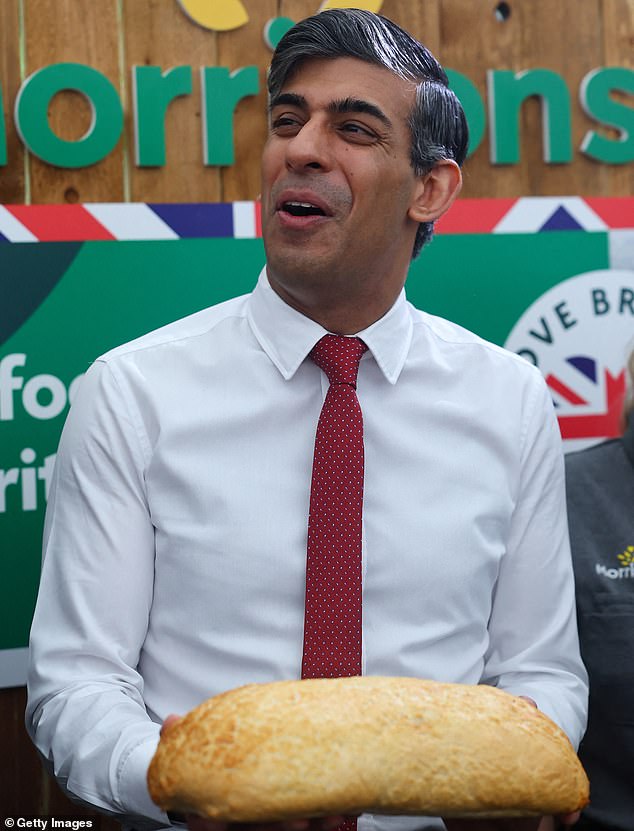Former Google vice president warns AI will be ‘very bad for society’ as it will leave millions of workers jobless – but expects plumbers will be safe from the controversial technology
- Ex-Google vice president Geoffrey Hinton: ‘People get self-respect from jobs’
- He called for a universal basic income to pay rent and prevent people from starving
A technology pioneer behind the rise of AI has said citizens should be given a universal basic income to counter the controversial technology’s devastating effect on employment.
Former Google vice president Geoffrey Hinton said AI and robots would be “very bad for society” because the millions of workers left unemployed by the technology will not enjoy the wealth that comes from the productivity boom.
Speaking to the BBC’s Newsnight, the academic said: ‘I certainly believe in a universal basic income.
“But I don’t think that’s enough, because a lot of people get their self-esteem from the work they do.”
He continued, “If you pay everyone a universal basic income, that solves the problem of them starving and not being able to pay the rent, but that doesn’t solve the problem of self-esteem.”
Former Google vice president Geoffrey Hinton (pictured) said AI and robots would be “very bad for society” because the millions of workers left unemployed by the technology will not enjoy the wealth that comes from huge productivity growth.

Speaking to the BBC’s Newsnight, the academic said: ‘I certainly believe in a universal basic income. ‘But I don’t think that’s enough, because a lot of people get their self-esteem from the work they do’ (Stock Photo)
The expert, who said he had floated the idea of a universal basic income to Downing Street, warned that many blue-collar and ‘middle intellectual jobs’ will disappear as a result of AI, but predicted that plumbing could be safe from the rise of the robots.
“My best bet on a job that’s safe is plumbing, because these things [AI] are not yet very good at physical manipulation,” he said. “That will probably be the last thing they are very good at.”
His warning comes as the International Monetary Fund predicts that 40 percent of jobs worldwide will be affected by AI. And the Institute for Public Policy Research has said that eight million jobs in Britain could be lost due to the introduction of AI in the workplace.
Hinton, who left Google in 2023 to raise the alarm about AI, said he was pleased that the world is now taking seriously the “existential threat” to humanity, as well as its impact on society.
“I’m very concerned that AI will take over many everyday jobs,” he said. “That should be a good thing. It will lead to a big increase in productivity, which will lead to a big increase in wealth, and if that wealth were equally distributed that would be great, but it won’t be.
‘In the systems we live in, that wealth will go to the rich and not to the people whose jobs are lost, and that will be very bad for society, I think.
“It will widen the gap between rich and poor, making it more likely that right-wing populists will be elected,” he warned.
Just days ago, Sainsbury’s signed an agreement with Microsoft to use the tech giant’s AI tools to improve the shopping experience for customers and help staff save time to focus on important tasks.

The expert, who said he had floated the idea of a universal basic income to Downing Street, warned that many blue-collar and ‘middle intellectual jobs’ will disappear as a result of AI, but predicted that plumbing could be safe from the rise of the robots (stock photo)

Rishi Sunak is expected to say on Tuesday: ‘To reap the benefits of AI, we must also work together to ensure it is safe’
And on Tuesday, Prime Minister Rishi Sunak will join President Yoon Suk Yeol of Korea to host a virtual session of world leaders and technology bosses.
Sunak is expected to say: ‘To reap the benefits of AI, we also need to work together to ensure it is safe.’
A Whitehall source said: ‘Britain continues to demonstrate global leadership on one of the defining technological and societal challenges of our time.’ The source added: “AI, managed safely, will continue to improve our quality of life and grow our economy.”
